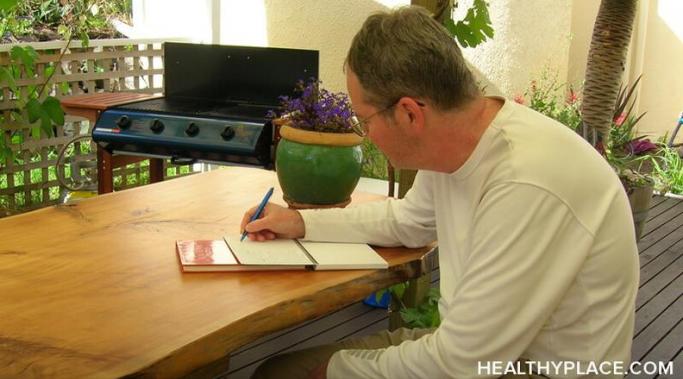Creating a wellness plan to prevent depression and depressive episodes is easier said than done. But having a wellness plan that can help you recognize the symptoms of depression and encourage you to use your depression coping skills can go a long way. Here's how to create a wellness plan to prevent depression.
Coping with Depression
Ashley Womble
It's not always easy to take the first steps towards seeking help for depression, or, indeed, any other mental health problem. But it's important not to cope with depression alone. Having the right medical and/or therapeutic help in place will help your chances of depression recovery. You need to understand the importance of seeking help for depression.
Ashley Womble
I use running to fight depression. When getting out of bed feels like a physical challenge, lacing up your running shoes and going for a jog is probably the last thing you want to do. I felt that way until I discovered just how powerful running can be to fight the symptoms of depression.
I like Facebook, but, unfortunately, too much Facebook can actually worsen depression. Living with depression can make you feel lonely, and social media can be a useful tool for keeping up your interactions with others, especially when you’re not getting out much. But, there’s a downside too. A worsening of depression can come from too much Facebook.
Ashley Womble
For the longest time, I thought I was just a sensitive, moody girl who had been battered by bad luck. I didn’t think I was depressed because reasons to be sad were always around. Throughout my 20s, I experienced a handful of family tragedies, lots of death, and my fair share of broken relationships. When a psychiatrist said that I had depression and anxiety, I felt I had earned my Diagnostic and Statistical Manual of Mental Disorders (DSM) diagnosis the way one earns a graduate degree. I had a masters in sadness. I figured I would always listen to Elliott Smith and read Virginia Woolf's novels. Depression was in my bones. Instead, not long after I began treatment for depression, I discovered that my feelings were symptoms of an illness, not personality traits. Happiness had been inside of me all along.
Perfectionism and depression are common and I know this because my name’s Liz, and I’m a perfection-a-holic. I suspect that my unrelenting standards (mostly applied to myself) might be linked more than I care to admit to my long term depression. I suspect my perfectionism comes with my depression.
When people think of depression, they think about a character like Eeyore in Winnie the Pooh -- someone who's a bit gloomy and sad, perhaps, prone to moping about. Some even think depression is a bit hip and edgy -- an affliction of creative types like artists and writers. But the truth is, I'm afraid, a lot less romantic.
I’m Liz Smith and I'm the new author on the Coping with Depression blog. I have depression, I’m 33, and I live in Leeds, a city in the north of England. It wasn't until my mid-20s that I was officially diagnosed with depression, but it was clear I was suffering well before then. Most of the time, I felt pretty desolate – lonely, misunderstood, and like there was nowhere I fit in. At university, everyone else seemed to be having a great time, but being around lots of confident, able people only magnified my insecurities.
It’s hard for me to believe, but my time writing for the Coping with Depression blog has come to an end. I started this journey because I believed that we can help one another by sharing our stories and our experiences about depression. Today, I’m more convinced of that than ever.
After just over a year of blogging for HealthyPlace, it's time for me to move on from co-writing Coping With Depression. I've written dozens of blog posts, spoken on the HealthyPlace YouTube channel, and had hundreds of conversations with you. With each post I've written, I've grown as a writer and survivor of depression.









